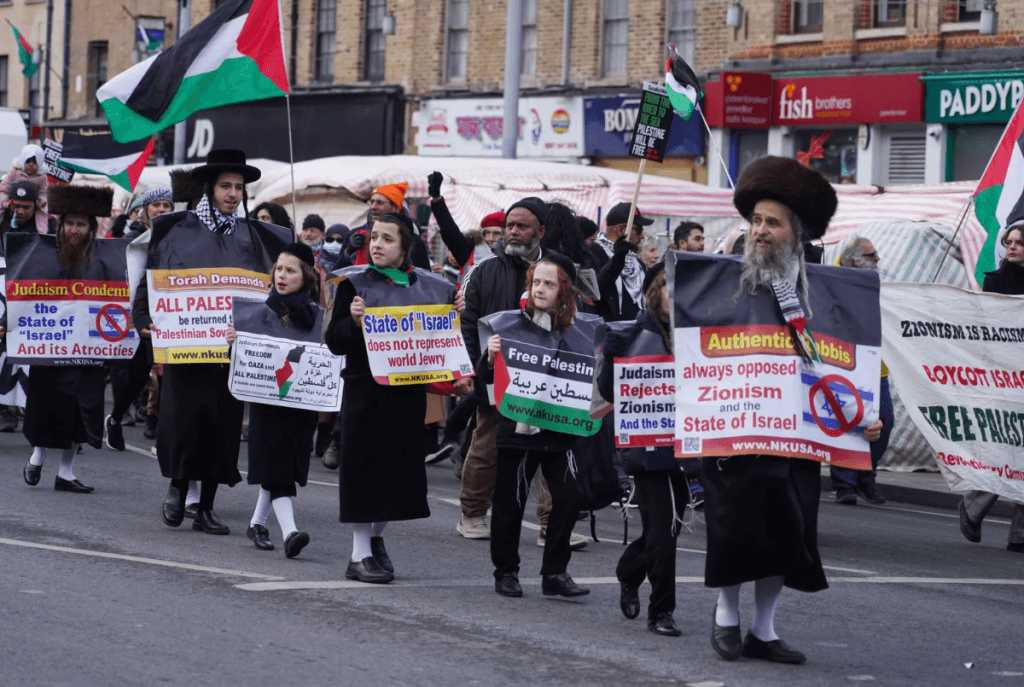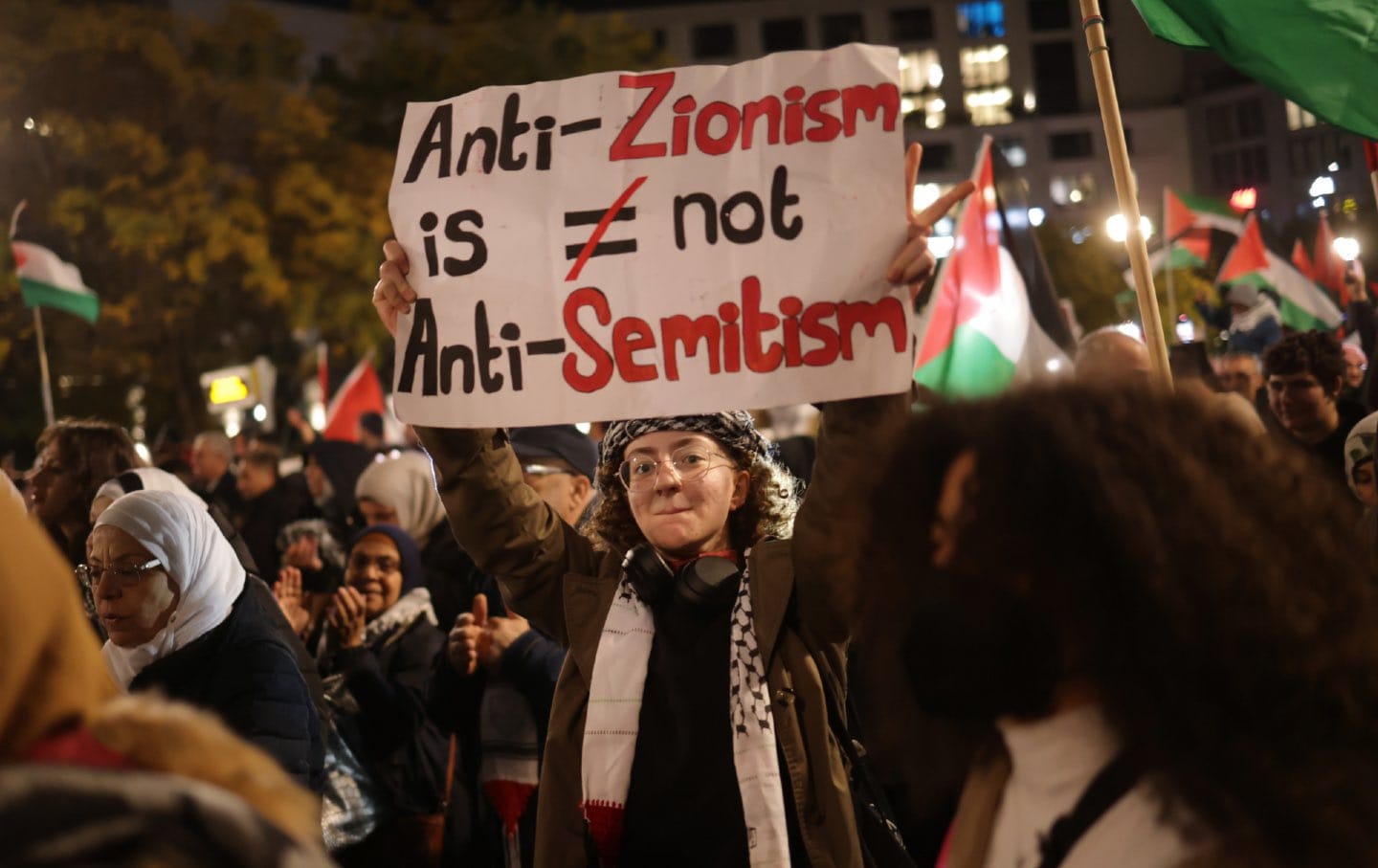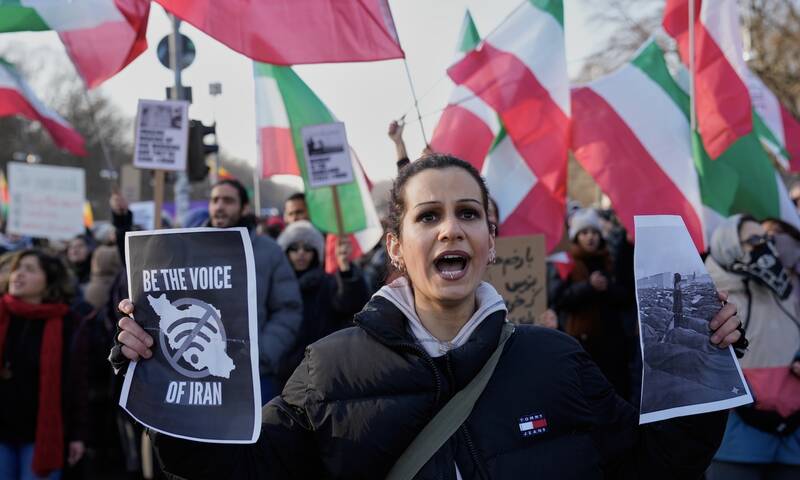With the ever-expanding awareness of the genocide in Palestine, the terms ‘Zionism’ and ‘Anti-semitism‘ have been penetrating online discourses and debates, but the distinction between them remains blurry. Usage of the word ‘Zionism‘ has been evoking rather strong feelings in netizens nowadays and is being taken to mean support of the colonial racist savagery that leads to more than 250 deaths daily.
For others more ensconced within the Jewish Israeli movement, it signifies national liberation for Jews, a chance for the oppressed to break free of their historical chains and lead themselves to their victory. Zionism as a concept encompasses several dimensions, and it is semantically and ontologically hard to boil down into a single viewpoint.
The origins and evolution of Zionism
Zionism emerged as a political movement in the late 19th century, primarily pioneered by Theodor Herzl, who articulated the vision for a Jewish homeland in his seminal work “Der Judenstaat” (The Jewish State). The movement arose against the paradigm of pervasive antisemitism across Europe, with a lack of state centralisation and integration of Jews into state languages and institutions oppressing Jewish populations in Eastern Europe and increasing ethno-nationalism and economic pressures in Western Europe, leading to debates on the very question of whether Jews should be integrated into the population.

Jewish communities ended up as victims of systematic discrimination, violent pogroms, and persistent othering within societies they had inhabited for generations. The fundamental premise of Zionism was a secularisation of and normalisation of the Jewish way of living to inspire liberation and a sense of self-determination in the peoples repeatedly subjected to persecution throughout the annals of history, which could never be truly safe and accepted without a sovereign state of their own, their very own Jewish state. They sought out independent statehood in the nation of Israel, where the Zionist movement flourished, with the Hebrew language once again being adopted into common vernacular, strengthening the ties of a people seeking refuge within their ilk — Holocaust survivors, Jews from Arab countries, Soviet Jews, and Ethiopian Jews all found their safe haven in the state of Israel.
Over the decades, Zionism has evolved and splintered into several ideological strands. The Russian Empire’s penchant for violence and tensions led Jews out in droves to Palestine a decade before World War I. This abrupt migration led to the spread of Russian socialist ideas throughout Jewish communities, creating ‘Labour Zionism‘, which disavowed Jewish tendencies to hire native Arab agricultural labour and distance themselves from physical work. Labour Zionism emphasised socialist principles and collective settlements known as kibbutzim, and was said to rid work of its exploitative nature and create a more efficient economic structure, but also had the underlying consequence of stripping the Palestinian Arab agricultural economy bare. This led to a greater concentration of power in Jewish hands, bringing them closer to the pure Jewish state they had envisioned in their scriptures and liturgy.
Antisemitism, on the other hand, refers specifically to prejudice, hatred, or discrimination directed against Jewish people based on their religious, cultural, or perceived racial orientation.
Religious Zionism integrated Jewish national aspirations with religious teachings, viewing the establishment of Israel as the fulfilment of biblical prophecy. Revisionist Zionism advocated for more aggressive approaches to state-building and expansion. Liberal Zionism emphasises the importance of maintaining both Jewish and democratic characteristics of the state while supporting peaceful coexistence with Palestinians.
Today, interpretations of Zionism and Israel range from basic support for Israel’s right to exist as a Jewish state to more expansionist visions involving settlements throughout the biblical land of Israel, including territories occupied since 1967.
The history and contemporary manifestations of Antisemitism
Antisemitism, on the other hand, refers specifically to prejudice, hatred, or discrimination directed against Jewish people based on their religious, cultural, or perceived racial orientation. While this hostility has manifested throughout the archives of history, metamorphosing in form but remaining the same, it is known as the world’s most ancient hatred.

Theological differences played a part in leading to religious antisemitism, specifically the Christian accusation that Jews were collectively responsible for the crucifixion of Jesus, a charge known as deicide, which comes from a verse in the New Testament, Matthew 27:25: “His blood be on us, and on our children,” also known as the blood curse. Even after the French Revolution, which boasted newly constructed ideals of Liberty, Equality, and Fraternity, France’s political and social inclusion of Jewish communities hinged on Jewish willingness to shed their ideals, customs, and religious orientations. This was the meaning of the slogan ‘To the Jews as individuals everything, to the Jews as a people, nothing.’
During the 19th century, racial antisemitism emerged from pseudoscientific racial theories, which claimed Jews constituted an inferior ‘race‘ with intrinsically harmful characteristics to the so-called superior ‘Aryan race.’ This was exacerbated by politicians wielding antisemitism as a political weapon to win electoral support and garner the majority opinion. The usage of this tactic only intensified after the political and economic disruptions of World War I in postwar Germany and Hungary, Poland, and Romania in the interwar period.
The history of antisemitism is marked by horrific episodes of violence and persecution, but none so devastating as in Nazi Germany, where the racial prejudice was unleashed to an extent the likes of which had never been seen before. The indoctrination of hatred and hostility penetrated the thinking of the masses and the elites, as well as the institutions, educational curricula, and policies, ultimately leading to more than 5.7 million Jewish deaths.
Beyond the Holocaust, Jewish communities have endured centuries of pogroms, expulsions, forced conversions, discriminatory laws, and systematic exclusion from all kinds of sectors within society. In contemporary times, antisemitism continues to manifest in hate crimes targeting Jewish individuals and institutions, Holocaust denial, conspiracy theories about Jewish global influence, and the use of antisemitic tropes in political discourse. Recent years have seen concerning spikes in antisemitic incidents in many countries, indicating the persistence of this form of hatred despite widespread educational efforts and greater societal awareness of its dangers.
Understanding the crucial distinction between Zionism and Antisemitism
So what is the fundamental distinction between these two concepts? Zionism is a political ideology advocating for Jewish self-determination tied to a physical homeland, while antisemitism is hatred directed at Jewish people due to their religious orientation and ethnic identity. It is essential to understand that these two concepts intrinsically differ from each other.
Not all Jews are Zionists; significant tranches of the Jewish populace harbour varying and non-extremist opinions regarding Israel, with some ultra-Orthodox groups in opposition to the state on religious grounds and other progressive Jewish institutions in criticism of specific Israeli policies. Conversely, not all Zionists are Jews; many non-Jewish individuals and groups support Israel’s right to exist for various religious, strategic, or political reasons, particularly evangelical Christians who see the restoration of Jews to Israel as fulfilling biblical prophecy.
Navigating the complexities in a polarised world
The Israeli-Palestinian conflict has created a rather fertile ground for confusion between these two ontologically divergent terms. Palestinians and their supporters remain in opposition to Zionism due to its implications for Palestinian communities, as we see the horrific events in Gaza that keep unfolding. Displacement from ancestral lands, military occupation, restrictions on movement, settlement expansion, and periodic outbreaks of violence have led to a wave of outrage against Zionist ideologies all over the internet.

From this perspective, opposition to Zionism represents resistance to policies perceived as colonial and dispossessive rather than prejudice against Jews as a people. Meanwhile, for many Jewish communities all around the globe, Israel represents not just a political entity but a vital safeguard against the very real threat of antisemitism that has plagued Jewish populations historically, criticizing Israel sometimes feel indistinguishable from attacks on Jewish security and self-determination — it is a fine line to walk between critiquing an ideology that has inspired so much bloodshed and genocide and one that has evolved as a solace to religiously marginalised populations for centuries.
The stakes of clarifying the distinction between Zionism and antisemitism remain extraordinarily high. Analysing criticism of Israel and antisemitism in the same vein risks both shielding a genocidal nation-state from pertinent accountability and trivialising the extremely real danger of antisemitism. Conversely, being unable to recognise when criticism of Israel treads the fine line into antisemitic territory encourages the perpetuation of long-repealed harmful stereotypes and once again leads to an atmosphere that marginalises Jewish people. It is crucial to acknowledge the reality of aeons of antisemitic persecution and oppression, ultimately culminating in the Holocaust, following which the need of the hour was sanctuary for Jewish people.
But it is also necessary to recognise the dispossession, colonisation, and occupation that have led to the prolonged and ongoing suffering and displacement of Palestinians. Consideration must be given to Israelis’ security concerns amidst hostile regional powers and terrorist attacks, as well as Palestinians’ aspirations for sovereignty and self-determination in their homeland. No perspective that dismisses or minimises any of these realities could begin to offer a moral or practical path toward a panacea.
References
- https://www.ajc.org/news/understanding-the-origins-of-antisemitism
- https://www.ushmm.org/antisemitism/what-is-antisemitism/explained
- https://www.britannica.com/topic/antisemitism/Nazi-antisemitism-and-the-Holocaust
- https://pluralism.org/zionism-and-israel
- https://www.britannica.com/topic/Zionism
- https://www.fpri.org/article/2015/01/origins-and-evolution-of-zionism
- https://www.annefrank.org/en/topics/antisemitism/are-all-jews-zionists





